Filter by
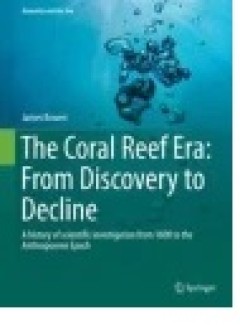
The Coral Reef Era: From Discovery to Decline
Relying heavily on primary source material Part 1 traces the sequential evolution of scientific thought and practice as the author explores the way this evolution is reflected in the search for understanding corals. At each stage, answers lead to fresh questions that challenge investigators to solve the riddle and new branches of science emerge. Then, with the first enigma finally understood, a…
- Edition
- -
- ISBN/ISSN
- 978-3-319-07479-5
- Collation
- XV, 195
- Series Title
- Humanity and the Sea
- Call Number
- -
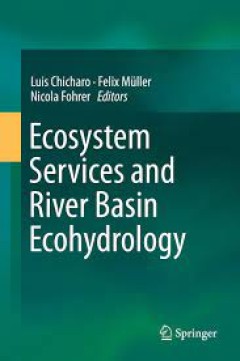
Ecosystem Services – Concept, Methods and Case Studies
Nature provides us with many services seemingly for free: recharged groundwater, fertile soil and plant biomass created by photosynthesis. We human beings draw extensive benefits from these “ecosystem services,” or ES – food, water supply, recreation and protection from natural hazards. Major international studies, such as the Millennium Ecosystem Assessment, have addressed the enormous r…
- Edition
- 1
- ISBN/ISSN
- 978-3-662-44142-8
- Collation
- -
- Series Title
- 53 b/w illustrations, 14 illustrations in colour 53 b/w illustrations, 14 illustrations in colour 53 b/w illustrations, 14 illustrations in colour 53 b/w illustrations, 14 illustrations in colour
- Call Number
- XII, 312
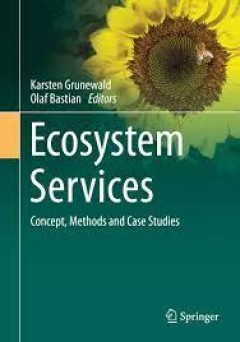
Ecosystem Services and River Basin Ecohydrology
This book provides an integrated analysis of the methodologies and main processes occurring at the entire river basin, from upstream until the coast, by merging the biological and hydrological processes with the social and economic components, thus providing an integrated framework for river basin management, integrating the ecohydrology approach with the ecosystem services concept.
- Edition
- 1
- ISBN/ISSN
- 978-94-017-9845-7
- Collation
- -
- Series Title
- -
- Call Number
- XIII, 341

Economic and Ecological Significance of Arthropods in Diversified Ecosystems
Arthropods play an important role in maintaining the health of ecosystems, provide livelihoods and nutrition to human communities, and are important indicators of environmental change. Yet the population trends of several arthropods species show them to be in decline. Arthropods constitute a dominant group with 1.2 million species influencing earth’s biodiversity. Among arthropods, insects ar…
- Edition
- 1
- ISBN/ISSN
- 978-981-10-1523-6
- Collation
- -
- Series Title
- -
- Call Number
- XXII, 422
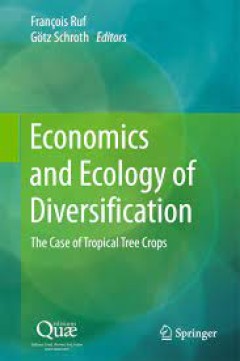
Economic and Ecological Significance of Arthropods in Diversified Ecosystems
Arthropods are invertebrates that constitute over 90% of the animal kingdom, and their bio-ecology is closely linked with global functioning and survival. Arthropods play an important role in maintaining the health of ecosystems, provide livelihoods and nutrition to human communities, and are important indicators of environmental change. Yet the population trends of several arthropods specie…
- Edition
- 1
- ISBN/ISSN
- 978-981-10-1523-6
- Collation
- -
- Series Title
- -
- Call Number
- XXII, 422
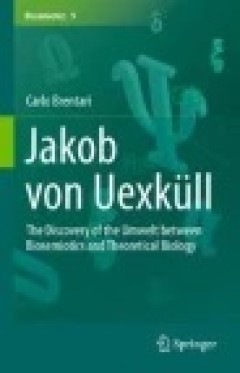
Jakob von Uexküll: The Discovery of the Umwelt between Biosemiotics and Theo…
The book is a comprehensive introduction to the work of the Estonian-German biologist Jakob von Uexküll. After a first introductory chapter by Morten Tønnessen and a second chapter on Uexküll's life and philosophical background, it contains four chapters devoted to the analysis of his main works. They are followed by a vast eighth chapter which deals with the influence Uexküll had on other …
- Edition
- -
- ISBN/ISSN
- 978-94-017-9688-0
- Collation
- -
- Series Title
- -
- Call Number
- -
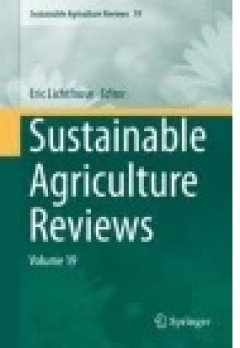
Sustainable Agriculture Reviews
This book features articles that analyze current agricultural issues and knowledge. It also proposes novel, environmentally friendly solutions that are based on integrated information from such fields as agronomy, soil science, molecular biology, chemistry, toxicology, ecology, economics and the social sciences. Coverage examines ways to produce food and energy in a sustainable way for humans …
- Edition
- Volume 19
- ISBN/ISSN
- 978-3-319-26777-7
- Collation
- VI, 399
- Series Title
- Sustainable Agriculture Reviews
- Call Number
- -

Their World: A Diversity of Microbial Environments
This volume summarizes recent advances in environmental microbiology by providing fascinating insights into the diversity of microbial life that exists on our planet. The first two chapters present theoretical perspectives that help to consolidate our understanding of evolution as an adaptive process by which the niche and habitat of each species develop in a manner that interconnects individua…
- Edition
- -
- ISBN/ISSN
- 978-3-319-28071-4
- Collation
- -
- Series Title
- -
- Call Number
- -
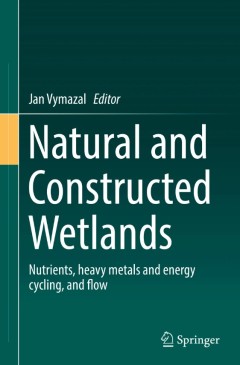
Natural and Constructed Wetlands:Nutrients, heavy metals and energy cycling, …
The book extends the knowledge on wetland ecosystem services based on the new research. The information combines the achievements gained in carbon sequestration, nutrient accumulation, macrophyte decomposition, wastewater treatment, global warming mitigation in constructed as well as natural wetlands across the globe. The book presents up-to-date results of ongoing research and the content of …
- Edition
- 1
- ISBN/ISSN
- 978-3-319-81774-3
- Collation
- XV, 295
- Series Title
- -
- Call Number
- -
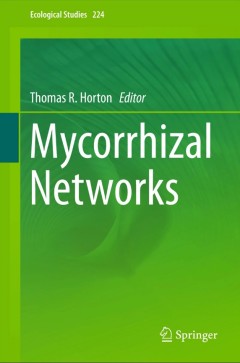
Mycorrhizal Networks
The last 25 years have seen significant advances in our understanding of the mycorrhizal fungi that colonize most of the world’s plants, and the mycorrhizal networks that form and extend into the soil beyond plant roots. In addition to a thorough review of recent research on mycorrhizal networks, this book provides readers with alternative perspectives. The book is organized into three sectio…
- Edition
- 1
- ISBN/ISSN
- 978-94-017-7394-2
- Collation
- XVIII, 286
- Series Title
- Ecological Studies
- Call Number
- -
 Computer Science, Information & General Works
Computer Science, Information & General Works  Philosophy & Psychology
Philosophy & Psychology  Religion
Religion  Social Sciences
Social Sciences  Language
Language  Pure Science
Pure Science  Applied Sciences
Applied Sciences  Art & Recreation
Art & Recreation  Literature
Literature  History & Geography
History & Geography